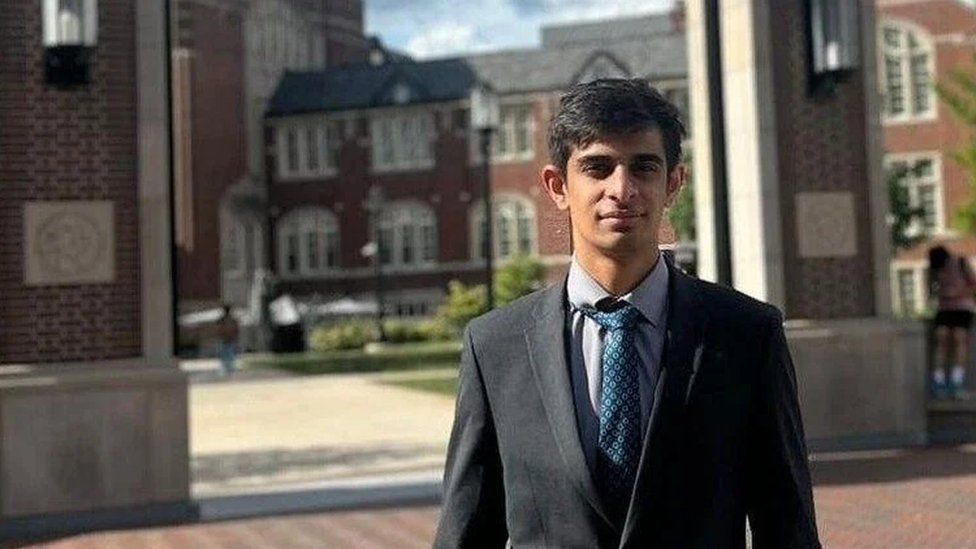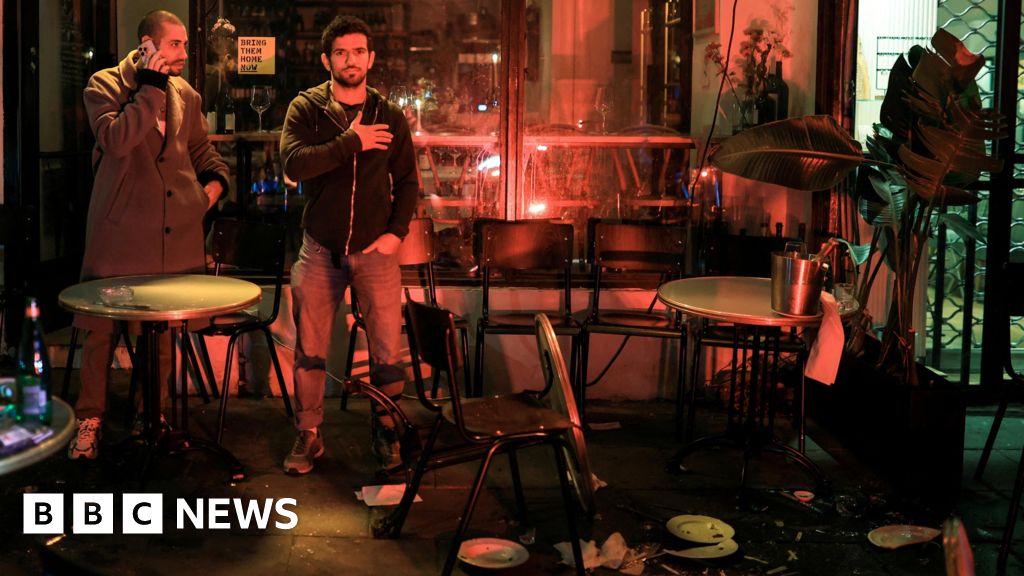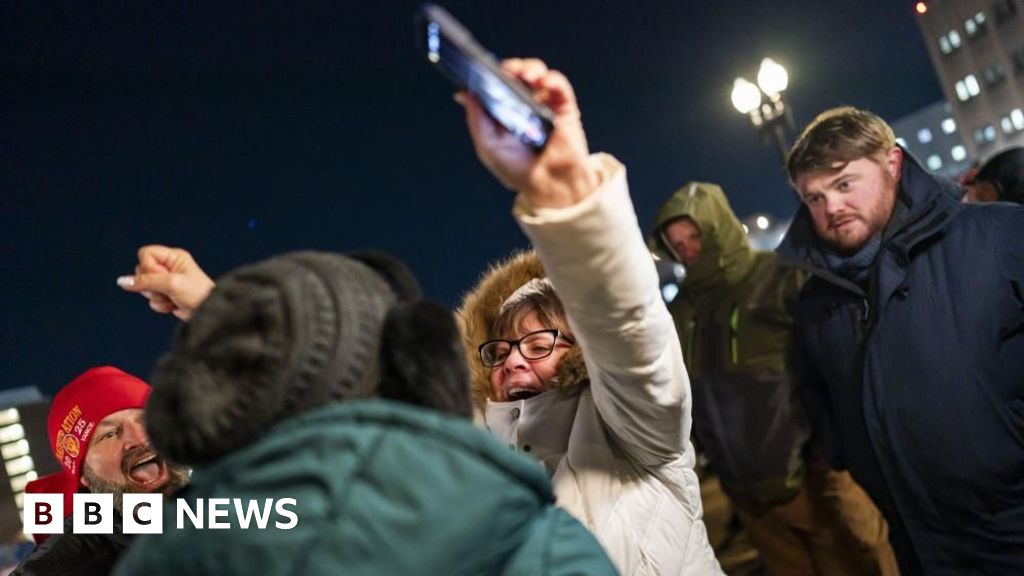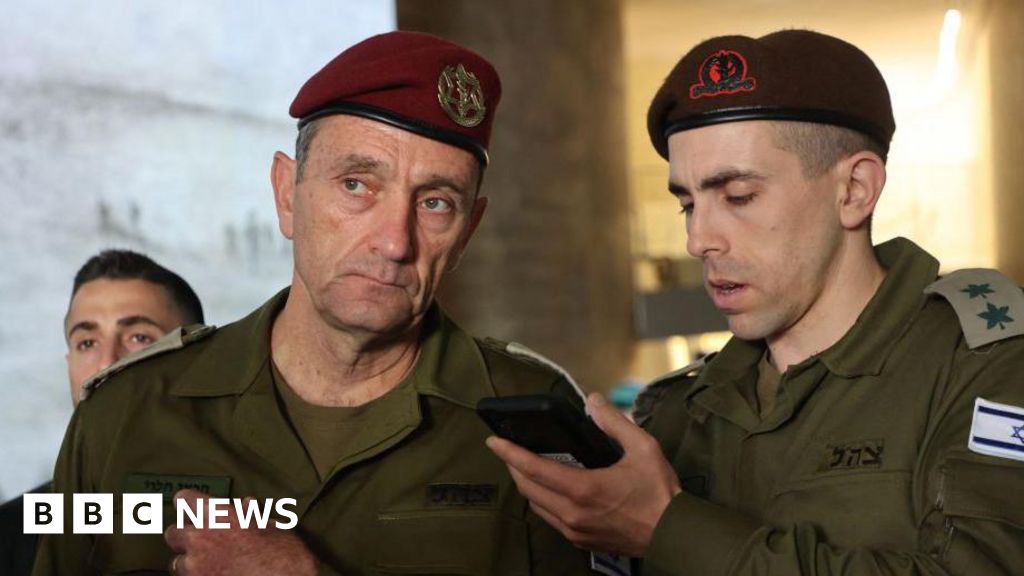ARTICLE AD BOX
 Image source, Purdue Exponent Org
Image source, Purdue Exponent Org
Neel Acharya, 19, was found dead on Purdue University campus - he died of asphyxia with exposure to cold
By Savita Patel
San Francisco
Dejected. That's how Jey Sushil, a student at Washington University in St Louis, Missouri, says he feels.
Mr Sushil is still shaken by the death in February of fellow student Amarnath Ghosh, a 34-year-old classical dancer from India. Local police are investigating it as a homicide case.
Mr Sushil says he found out about Ghosh's death through a friend in India before receiving any information from his university.
"They told us after two days. Students are not very happy with the overall response. It's like, who cares about how Indians feel?"
Ghosh was fatally shot off campus in a city street. The university clarified that it communicates a student's death only after law enforcement confirms the identity, a process that takes time, and with consent from the student's next of kin.
Calling it a "horrible tragedy", the VC of Marketing and Communications at Washington University in St. Louis, Julie Flory said, "We shared this sad news with members of our community as soon as we could and according to the wishes of Amarnath's closest contacts."
The St. Louis Police Department said it "takes 48 hours to establish identity" of the deceased and "in many cases, much longer".
Ghosh is among the 11 Indian or Indian-origin students who have died in the US so far this year, sparking fears about personal safety within the community.
The causes of death have varied, from hypothermia to suicide to shooting. Experts say there is no discernible link between these unrelated incidents. As each tragedy echoes through campuses, students carry on with their daily routines, balancing fears amid academic demands.
"We avoid going out after dark. We have identified places in the city that are unsafe in the evenings. What else can we do?" Mr Sushil asks.
Image source, Getty Images
Image caption,Thousands of Indian students move to the US every year to get degrees from American universities
Like him, others also complain that their universities do not report the deaths on time, and they find out about them through Indian media or from relatives back home.
Mohammad Abdul Arfath, 25-year-old student of Cleveland State University (CSE), was found dead earlier this month after he went missing in March.
A student, who wanted to stay anonymous and joined the college at the same time as Arfath, said he found out about his death through a WhatsApp message from his parents.
"My parents reminded me that I have to stay on guard," he said.
Nearly 267,000 Indians enrolled in US universities in 2022-23 and the number is projected to reach a million by 2030.
"The desire, the draw or pull of an American degree is very strong in India and appealing to Indian families," says Rajika Bhandari, a New York-based education expert.
Sangay Mishra, an associate professor at Drew University in New Jersey, says there is no "clear pattern" that connects the deaths and that "it's important to not fall into the trap of building an overarching narrative that it's happening because they're Indians".
"I haven't seen anything which suggests that these are cases of racial hostility or attacks based on race."
Indian parents say they try to maintain regular contact with their children.
"It scares us whenever we hear such kind of news sitting far away in India," says Meenu Awal, whose son studies at the University of Southern California.
Ms Awal says that she's instructed her son to "not retaliate" even in a case of a robbery. "I have told him to just give cash or whatever, and walk away."
Neetu Marda from Jaipur city says she talks to her daughter at New York University every day and keeps her friends' phone numbers handy. "I ask her not to go out alone with unknown people."
Image source, Nitya Vedantam
Image caption,Amarnath Ghosh, who was doing his dissertation in classical dance, was killed in St Louis in February
Students at different campuses also follow their own safety protocols.
Anushka Madan and Ishika Gupta, co-presidents of the Association of South Asians at Tufts University in Massachusetts, say they have a set of common safety rules, which includes not walking alone on campus at night.
"Boston is generally pretty safe," Ms Gupta says. "But we stay a bit more cautious right now, more aware of our surroundings."
Along with physical safety, universities are aware of the psychological impact on students.
"It's become clear that international students are increasingly facing mental health issues which are a combination of immense financial pressure and academic pressure to keep up their level so that their visa status is not affected," says Ms Bhandari, the education expert.
"It's a huge psychological burden when they're thousands of miles away from home."
Others note that the students, hailing from varied economic and cultural backgrounds, experience their time abroad differently.
"International students face unique stressors when they leave their support systems and navigate a new culture," says Reena Arora-Sanchez, executive director of communications at CSU.
Image source, Getty Images
Image caption,Nearly 267,000 Indians enrolled in US universities in 2022-23 and the number is projected to reach a million by 2030
The Indian embassy in the US offers guidelines for students to contact them and hosts regular online and in-person open house sessions.
At Georgia Institute of Technology, Pratham Mehta, the president of the India Club, says they've reached out to the institute's "large Indian student population".
There are various on-campus therapy services available, and the club also facilitates connections to the Indian consulate for students feeling unsafe. Additionally, CSU provides an app linking students to the university's police department and offers a free safety escort service for campus and nearby student housing.
Experts say that security and law enforcement have always been an important factor for students while choosing colleges.
In February, US Ambassador to India Eric Garcetti said, "We are very committed to making sure that Indians know that the United States is a wonderful place to study and to be safe."
But the recent spate of deaths have brought the issue into sharper focus.
American universities know that there is a "huge and growing appetite among Indian students to study abroad", Ms Bhandari says. "Institutions are in a tough place trying to capitalise on this interest but at the same time, there's a clear acknowledgement that there are very real concerns around personal safety."
Despite uncertainties, the US remains a sought-after destination for students.
Swaraj Jain from Jaipur is heading to New York University in August, brimming with excitement and a clear understanding of the challenges ahead.
"Everyone talks about gun violence and crime. I will have to be careful," he says.

 8 months ago
59
8 months ago
59








 English (US) ·
English (US) ·